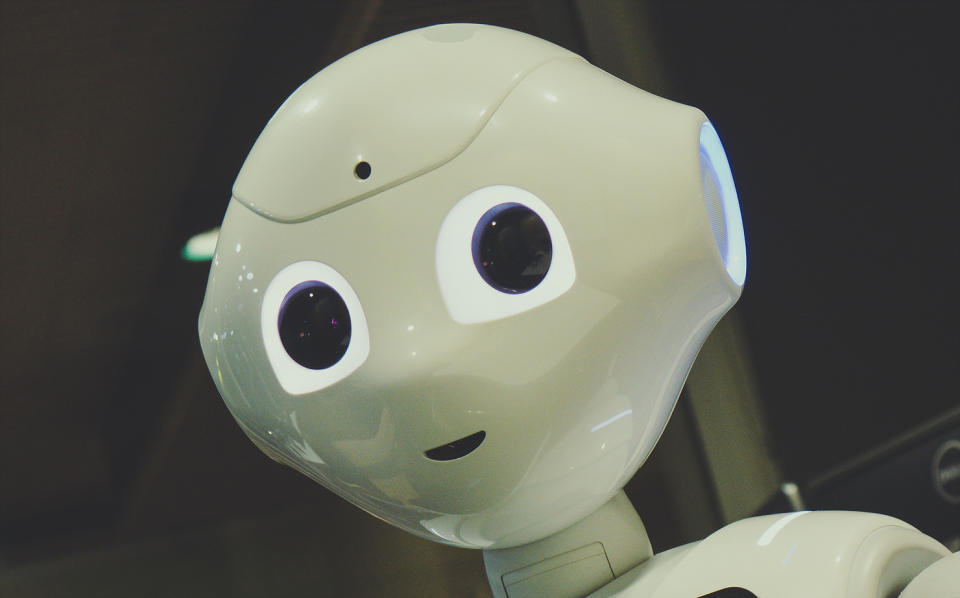2 High-Growth AI Stocks
This article was first published by MyWallSt. Find out more about MyWallSt's market-beating investing services now!
Elon Musk has returned to public attention in recent weeks with a set of announcements related to his two artificial intelligence ventures, OpenAI and Neuralink.
It's the nature of his following that whenever the South African-born visionary unveils a new project, people immediately take notice. But besides that, there are few fields that tease the imagination more than artificial intelligence, particularly with its remarkable potential for the future.

Image source: Unsplash.
And while the likes of Google (NASDAQ: GOOG), NVIDIA, and Facebook (NASDAQ: FB) have the deep pockets to conduct research at the highest level, there are plenty of smaller companies out there playing an outsize part in the AI revolution.
Here are two of them:
iRobot
Most famous as the maker of the Roomba smart vacuum, iRobot (NASDAQ: IRBT) is a pioneer in the fields of robotics and artificial intelligence. As with so many other companies in this space, the Massachusetts-based company is helmed by a true original, CEO Colin M. Angle, who co-founded iRobot in 1997.
While the vacuuming space was once dominated by traditional household appliance makers like Bosch and Dyson, Angle foresaw a day when robotics and cleaning technologies would merge. It has taken a while, but his vision is coming true. In 2012, for instance, robotic vacuum cleaners made up about 13% of the total volume sold. Mostly thanks to iRobot, that number has doubled since then. Meanwhile, the worldwide market for robotic vacuums is expected to grow about 18% each year over the next five years.
Today, iRobot has a global presence, having sold more than 25 million robot appliances worldwide and established itself as a pioneer in the areas of domestic mapping and navigation. As a result, iRobot's research capabilities enjoy a positive feedback loop. The company's steady dominance of the world of home robotics is allowing it to attract more and more talented engineers (it currently employs about 1,000), who in turn are securing its place as an industry leader.
Although the company has suffered a shaky few weeks after it revealed to investors in its earnings report that the ongoing U.S.-China trade war would weigh on the company for the rest of the year, iRobot arguably has many more years of growth ahead of it.
Cognex
One of the core puzzles of AI engineering has always been machine vision -- that is, the ability to make robots see. After decades of effort, scientists are still optimizing the ability of artificial systems to use imaging-based analysis.
Enter Cognex (NASDAQ: CGNX), a developer of machine vision systems for use in automated manufacturing. Cognex's high-tech products are used to operate and inspect robot assembly lines, detect flaws and defects, and even guide other factory-floor machines.
Despite its less-than-glamorous core business, there is plenty for investors to love about Cognex. Some of the world's largest and most powerful companies -- including Ford, IKEA, and Tesla -- count themselves as clients, while Apple alone accounts for an astonishing 15% of revenue.
Furthermore, Cognex has become a major part of its corporate customers' supply chains, meaning its business model is very sticky indeed.
A public company since 1989, Cognex has since become the market leader in large-scale automation. Automation -- the replacement of workers by robots -- is a revolution that's already underway, and Cognex is quietly riding its waves.

Image source: MyWallSt.
How can you absorb 25 years of stock market knowledge in one day? Check out InPerson by MyWallSt now!
MyWallSt operates a full disclosure policy. MyWallSt staff currently hold long positions in Alphabet (Google), Cognex, Facebook, Ford, iRobot and Tesla. Read our full disclosure policy here.
More From The Motley Fool
Suzanne Frey, an executive at Alphabet, is a member of The Motley Fool’s board of directors. Randi Zuckerberg, a former director of market development and spokeswoman for Facebook and sister to its CEO, Mark Zuckerberg, is a member of The Motley Fool's board of directors. The Motley Fool owns shares of and recommends Alphabet (A and C shares), Apple, Cognex, Facebook, iRobot, NVIDIA, and Tesla. The Motley Fool has the following options: short January 2020 $155 calls on Apple, long January 2020 $150 calls on Apple, short January 2020 $155 calls on Apple, and long January 2020 $150 calls on Apple. The Motley Fool has a disclosure policy.
This article was originally published on Fool.com

 Yahoo Finance
Yahoo Finance 